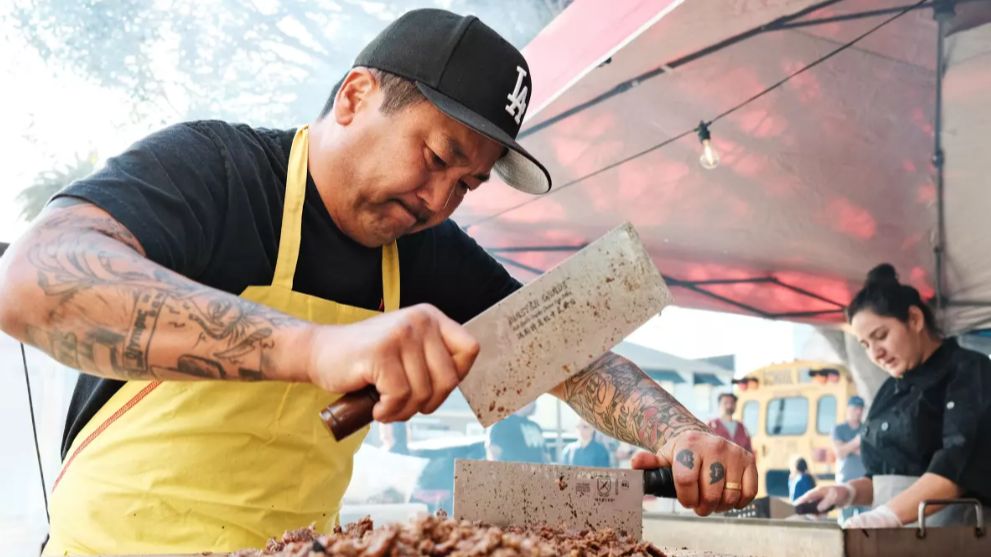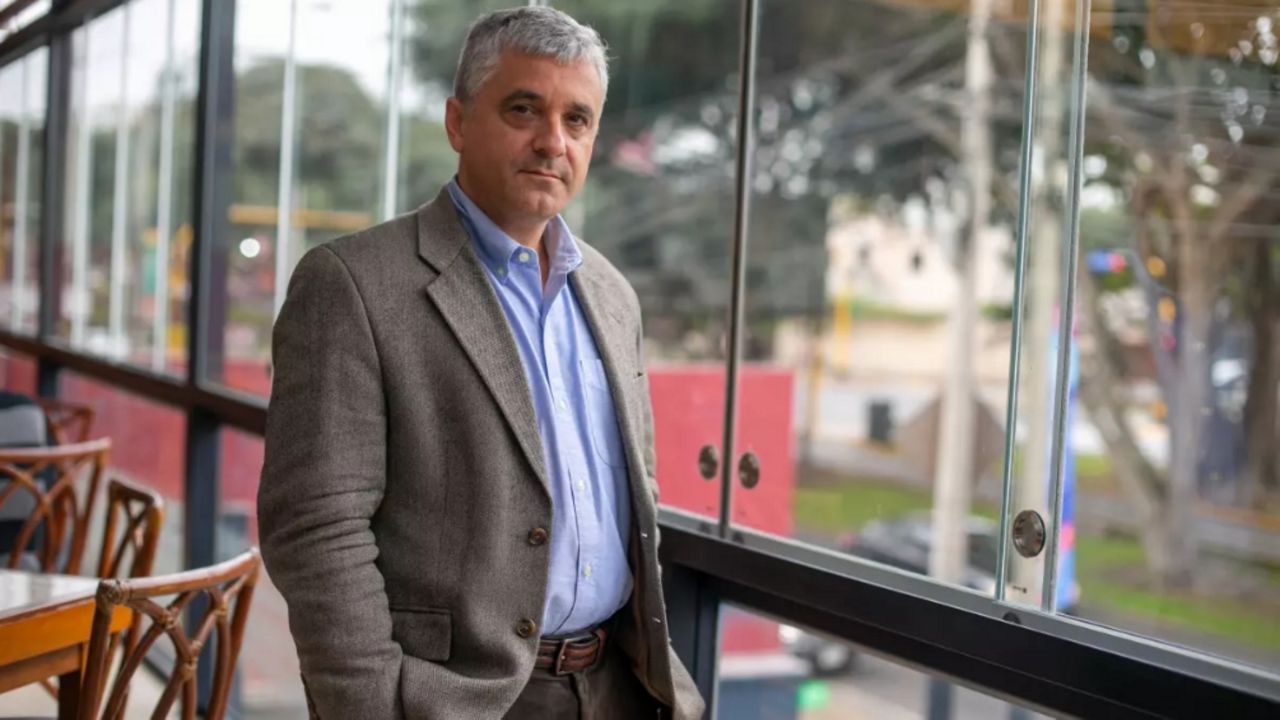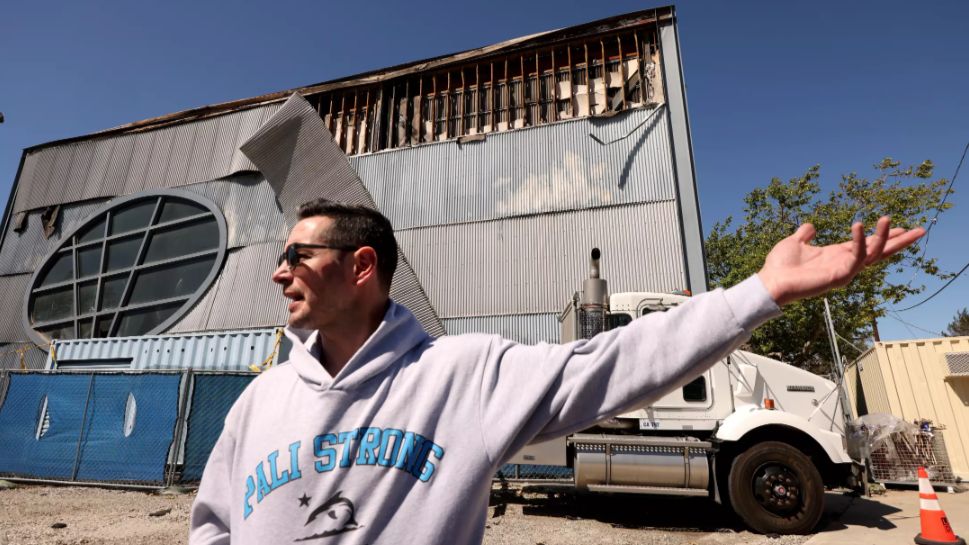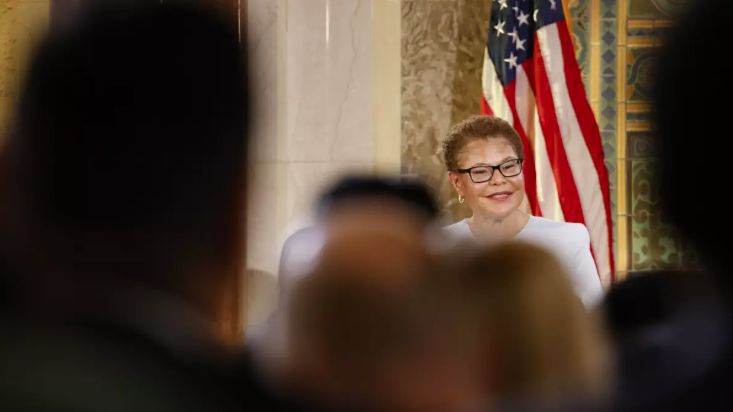As Russia continues its invasion, volunteers from around the world have descended upon Ukraine to pick up arms and defend the country’s territory. In an interview for “LA Times Today,” Los Angeles Times foreign correspondent Patrick McDonnell joined host Lisa McRee from Kyiv, Ukraine with more on the volunteer soldiers.
McDonnell talked about who the volunteers were and where they were coming from.
“I think this has become one of the extraordinary developments of this war, which is very bloody and lamentable in many respects," McDonnell said. "But President Zelenskyy put out a call for foreign fighters, kind of invoking to some extent the spirit of the 1930s International Brigade in Spain, which was very renowned for fighting, albeit not successfully, against fascism there. There’s really been thousands and thousands of young men, mostly, making their way out there. Some are veterans, some have no experience. Some are idealists, some are radicals one way or another, left or right. Many of them are making their way to Poland and the border and coming into Ukraine saying they want to fight."
One of the fighters McDonnell wrote about is a retired chemistry professor from Chicago who showed up and offered to help. With so many people coming in, organizing the volunteers has been chaotic.
“There’s quite a number of fighters that came in early that have left," he explained. "They complained the training wasn’t very good. The weaponry and equipment weren’t very good. And also, that discipline wasn’t very good. Some of the experienced fighters found that they were thrown onto the front line outside of Kyiv, the capital where I am now, and they felt that they were being treated as cannon fodder. So, they were very disenchanted. It’s not everyone’s experience, but several people have told me that. And it’s also circulating on social media."
Information on how to help the cause and volunteer to fight has been scattered and often unreliable.
“On some level, I guess one could say this is admirable because they really felt strongly enough that, even though there wasn’t that much official information out there, they formed Facebook groups or Reddit groups and chatrooms and kind of made their way to Poland," he said. "There is a whole other contingent of Ukrainian expatriates who’ve made their way here. There are tens of thousands of them. ... I’m specifically talking about foreigners, many Americans. I want to emphasize that it's not just Americans, many are Europeans, many Brits, but quite a few Americans we’ve run into here, some with combat experience, some with no combat experience."
Some volunteers are rejected outright. If they are accepted, volunteers often get a minimal amount of training and minimal protective gear.
“That’s is exactly the case," McDonnell said. "That’s been told to me by people who’ve been through the system. I think it’s improved a little bit lately, but people have told me that is exactly the case. The training is not that great. And I should say that I’ve been told that the vetting of the people who are going to be in your military unit has been criticized. It’s obviously very important. If you’re going to go into battle, you want to have some confidence in the person next to you."
James Vasquez, 47, is a house builder in Connecticut and has had millions of views on his Twitter videos he’s taken at the front lines without disclosing his actual location. He said that those views have helped him raise money so that they can buy armor. McDonnell shared more of Vasquez’s story.
“The last time I checked, he said he’d raised more than $50,000 to buy helmets. He said they managed to buy a couple of vehicles," McDonnell said. "They’ve been overwhelmed with support. This guy is a home builder from Connecticut. He was in the army; I think the National Guard. From what I can tell [he has] no previous overseas combat experience, but he’s very enthusiastic on Twitter. And if one believes what he says about himself is true, he has been very effective in the field with his unit and his Twitter posts are intriguing."
Hieu Le is an American Army veteran who served in Afghanistan. He traveled to Ukraine to aid in the fight against Russia. McDonnell talked about Le’s efforts and what he’s encountered there.
“He himself is the son of refugees from the Vietnam War, and he grew up in the San Francisco Bay Area," McDonnell shared. "He did serve in combat in Afghanistan. He was moved for ethical reasons to come to Ukraine and was put pretty quickly into the front line at Irpin, which is outside of Kiev. It was largely under Russian control. He and a number of colleagues were tasked with retrieving the body of a soldier who had been killed. It was another international soldier from the country of Georgia. And he said it was a 13-hour ordeal and one of the most difficult things he’d ever done. They did get the departed Georgian soldier’s body back. But he said it was just very hard because they were constantly under fire in a very difficult situation. He left shortly after that."
Watch “LA Times Today” at 7 and 10 p.m. Monday through Friday on Spectrum News 1 and the Spectrum News app.











